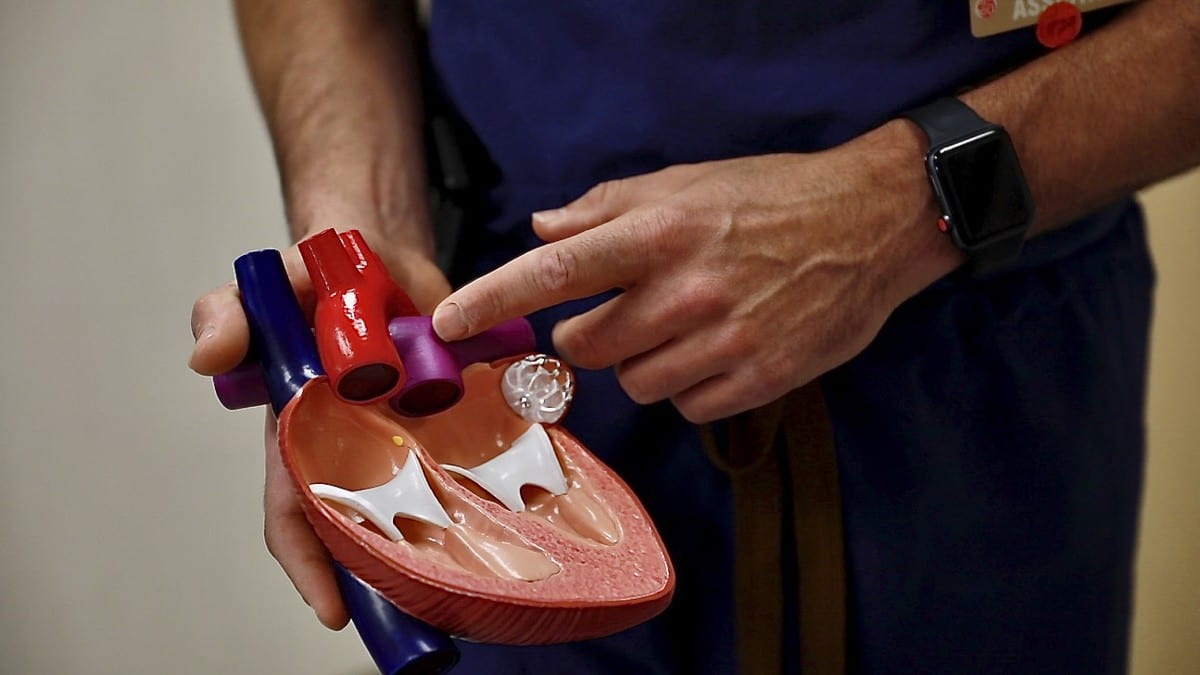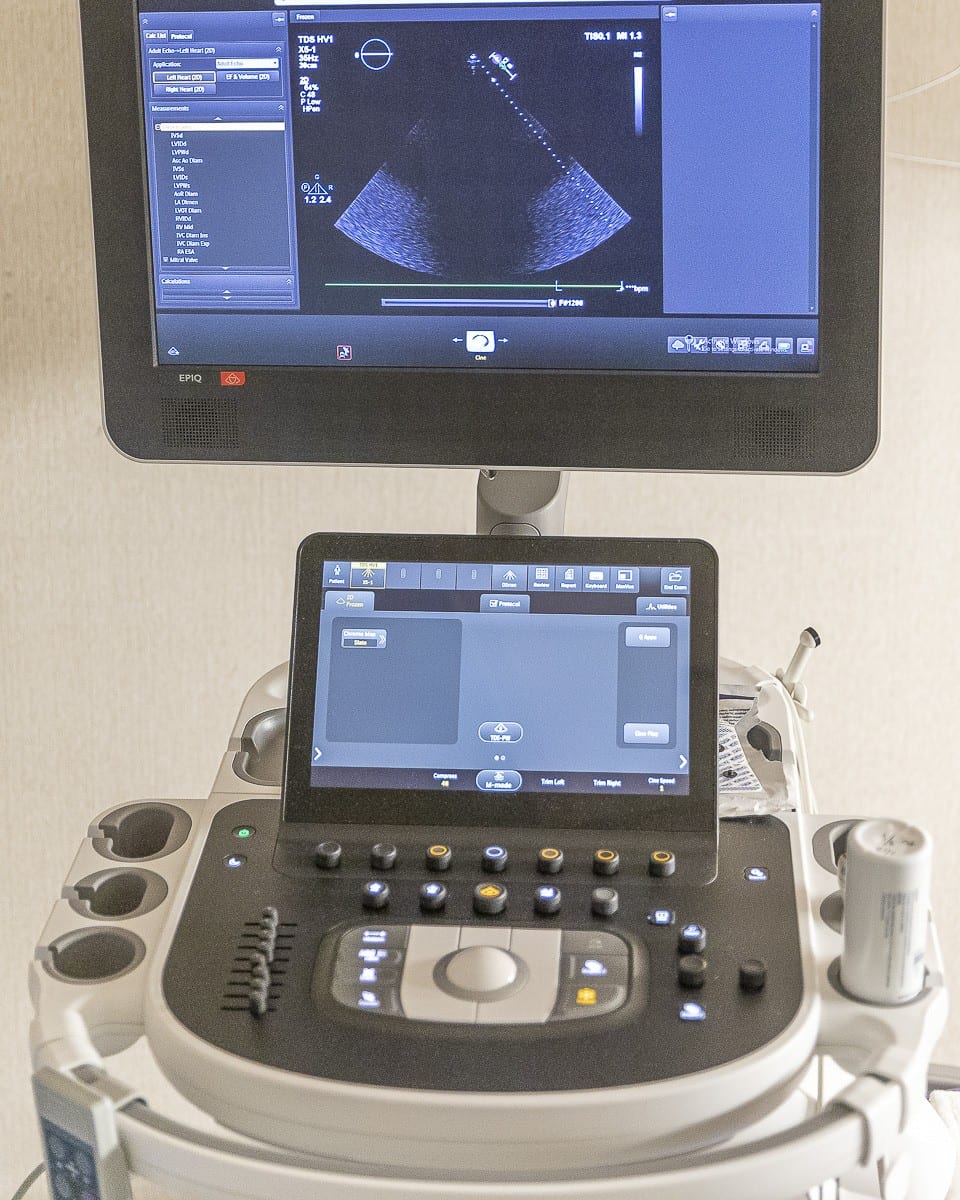Cardiologist and pulmonologist work together to treat nuanced illness
VANCOUVER — It’s rare, but deadly; nuanced, but treatable. Pulmonary hypertension (PH) is an illness affecting a wide range of people, but most often those with several larger conditions that are the actual cause.
Across the country, many hospitals and medical centers have PH clinics. They are typically run by the cardiology or pulmonology departments, with 70 percent in the case of pulmonologists. At PeaceHealth Southwest Medical Center, they’ve opted for collaboration.

Doctors Josh Grant and Bhanu Patibandla, a cardiologist and pulmonologist respectively, form the base of the program at PeaceHealth. Together, they work to treat patients with PH and explain the effects the illness has on the heart and lungs.

“We’re very driven by patient care, and we really want to see people do well,” Grant said. “Having this clinic allows us to take that multi-faceted approach so that we can see the interplay between both the heart and the lungs in this disease. We see many patients with really several causes for their pulmonary hypertension, and it’s through treatment of all of these causes that really allows us to better patient care, to improve symptoms and to hopefully provide quality of life.”
At its simplest, PH is an illness that negatively affects the arteries in the lungs and the right side of the heart. The arteries can be obstructed by blood vessels which are not functioning properly and are narrowed, blocked or damaged, or the left side of the heart can be compromised making blood flow irregular.
As Patibandla explains it, there are two sides in the heart. The left side of the heart pumps blood to the whole body except the lungs. After delivering oxygen to the body, this blood returns to the right side of the heart, which is responsible for pumping blood into the lungs, where it gets oxygen and returns to the left side of the heart to be pumped forward again to the rest of the body. This process is how normal blood flow happens.
When this process is disrupted in any way, it can lead to PH.

“Any condition that compromises this blood flow can cause pulmonary hypertension,” Patibandla said. “Many of the symptoms of PH are also similar to what patients experience with heart and lung problems, such as heart failure, or atrial fibrillation or any valvular disease, or lung problems such as COPD or asthma. That’s one of the things that makes the diagnosis of pulmonary hypertension very challenging.”
With a difficult diagnosis process, PH is often under or misdiagnosed, Grant said. The process is thorough, and begins with a screening and patient exam. A special type of heart ultrasound known as an echocardiogram is the primary method for then observing the pressures in the heart.
The PeaceHealth PH clinic has been open for about a year, and has seen many patients and administered a number of treatments. Jane Nelson is one of those patients, and traveled all the way from Mossyrock, WA to be treated by the clinic.
“They’re both in the room at the same time, you know, asking questions, and so it’s great,” Nelson said. “It’s one co-pay, and it’s great. I’m fine. I’m good. They’ve done everything that they should do, I guess, got me on the right medicine and I’m feeling great.”

Prior to being treated, Nelson was experiencing significant breathing issues, and at one point checked herself into the emergency room. Now she is on two specialty medications that help regulate the causes of her PH.
Virginia Christianson will be 84 this November, and thanks to the treatments she receives for her PH at the PeaceHealth clinic, she is confident she has many more years. After struggling with breathing during sleep, she went to the hospital and was later connected with Grant and Patibandla.
“One of the lower parts [of my heart], it would expand, not contract,” Christianson said. “So the fluids were going into my lungs. That’s why I had a hard time breathing, and I had no clue of it. I thought, ‘Well, maybe I’m gonna check out soon, because I’m older.’ But no, I’ve got plenty of get up and go and I’m gonna get up and go.”
Both Nelson and Christianson said they felt the collaborative nature of the clinic made them feel more confident of their diagnosis and treatment.
“I feel hundred percent taken care of here,” Nelson said. “I mean, I love those two guys. They have really changed my life because I can breathe pretty darn good.”
For more information on the PeaceHealth Southwest Medical Center’s pulmonary hypertension clinic, visit their site here. To learn more about PeaceHealth and the collaborative programs they are using, visit their main site.




